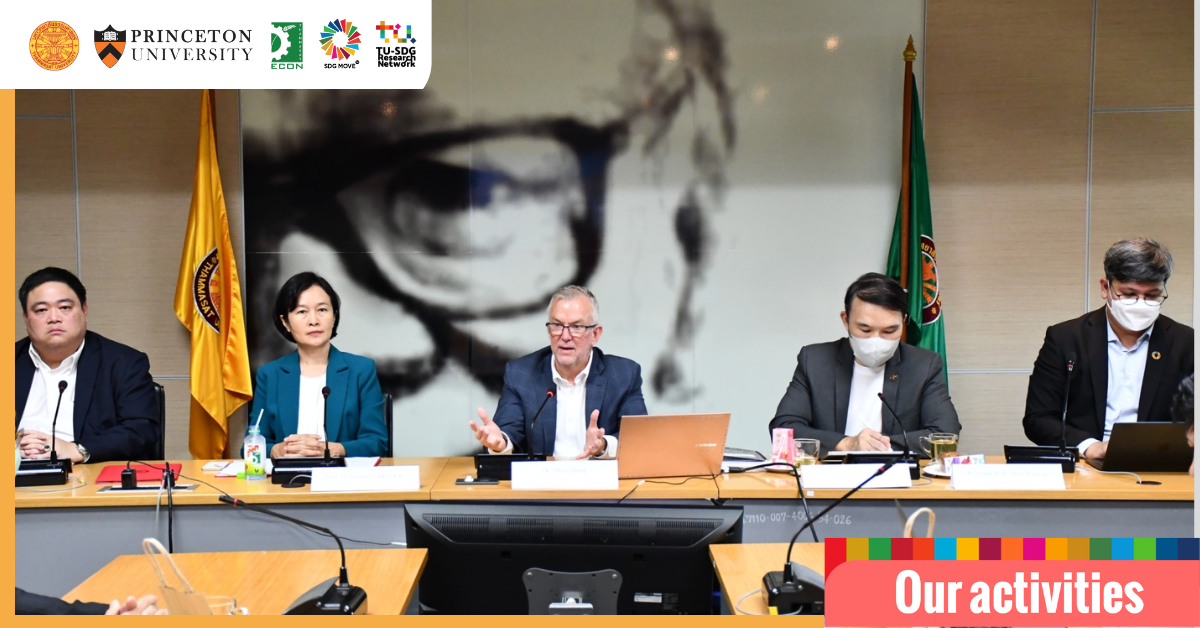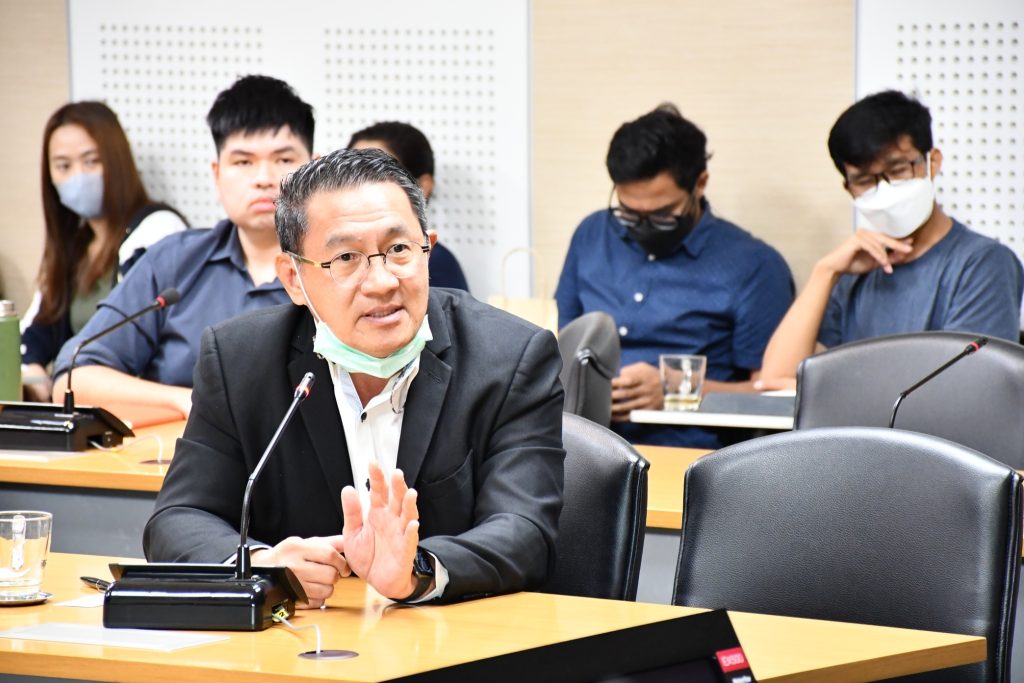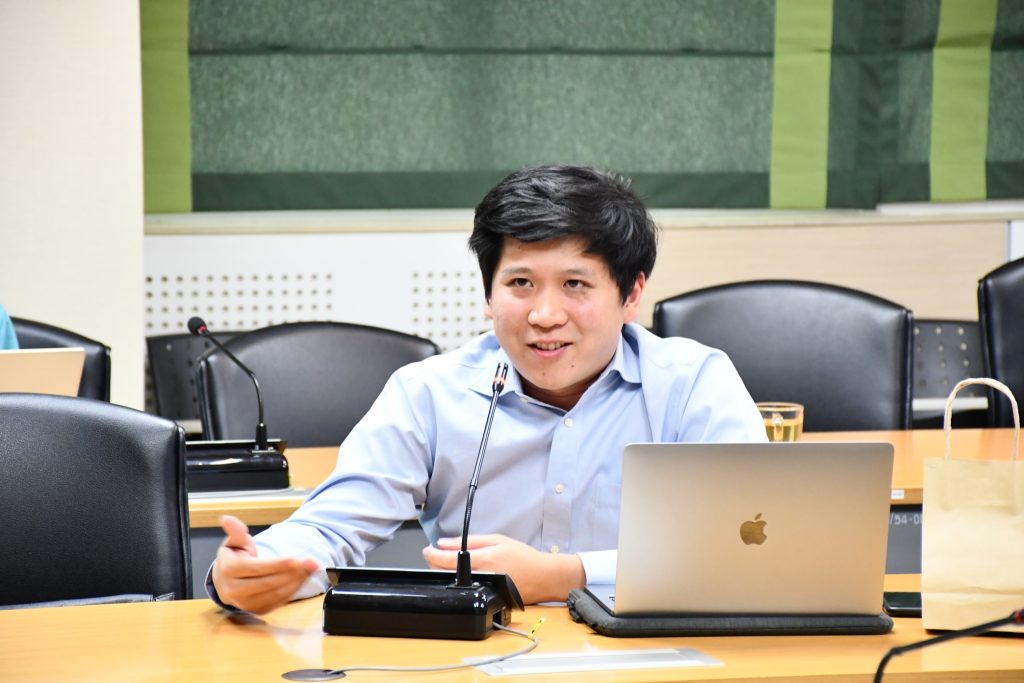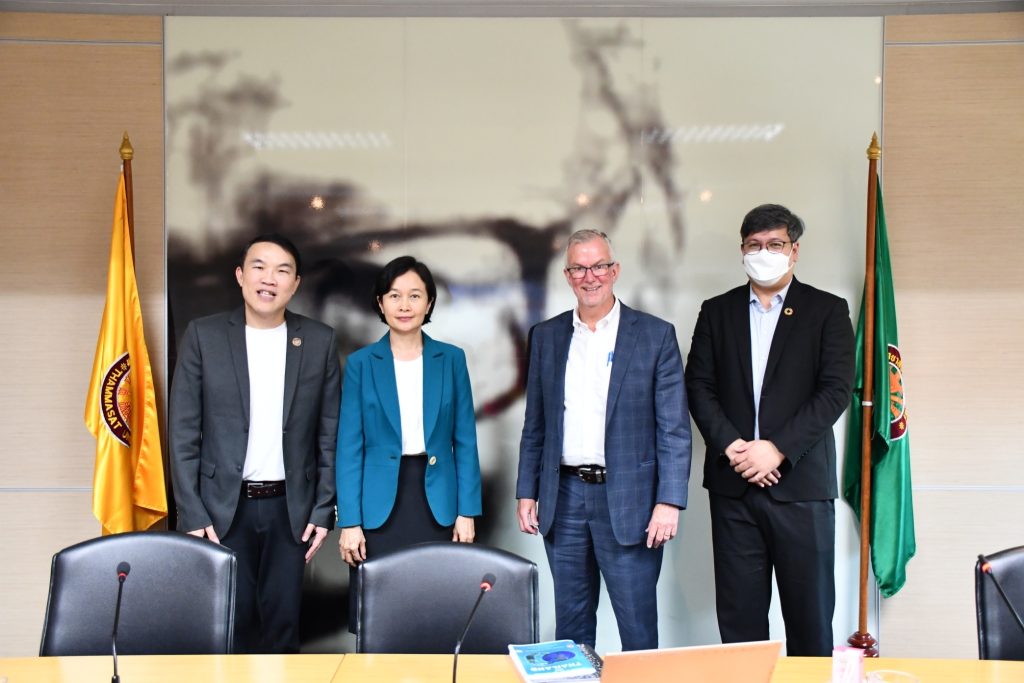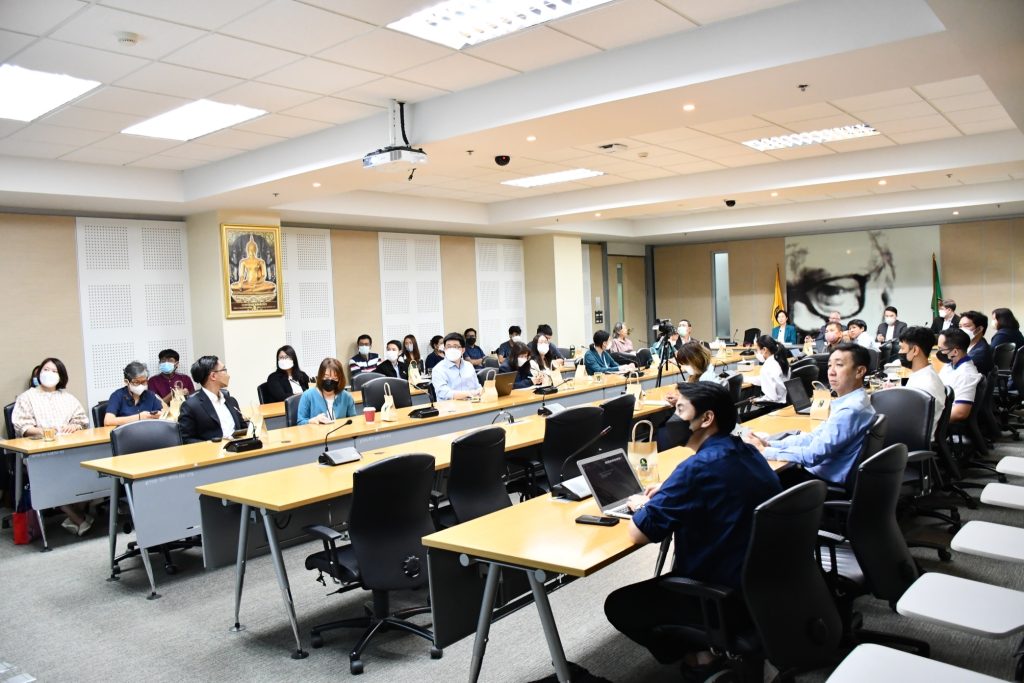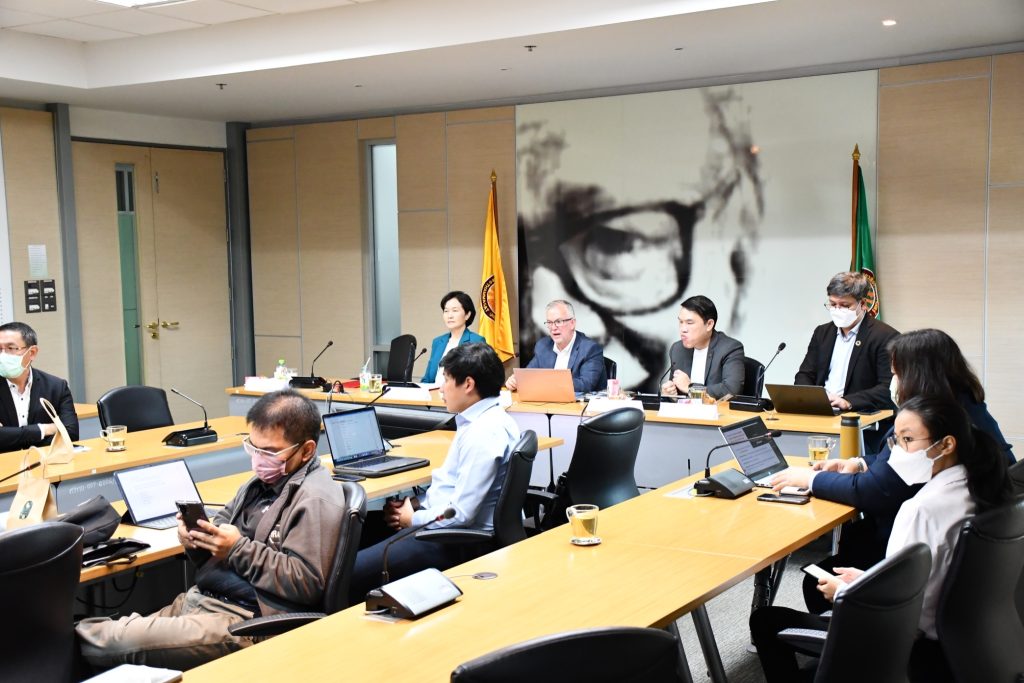20 January, 2023 – Thammasat University and the Andlinger Center for Energy and the Environment at Princeton University co-organized a public seminar entitled “Net Zero Thailand: Towards Net Zero Greenhouse Gas Emissions in Thailand with Insights from the US & Australia and Application for Thailand”. The seminar aimed to share insights and foster analysis of pathways towards achieving climate commitments, and to reaffirm the collaboration between the two universities.

On January 20, 2023, from 9:00 a.m. to 11:00 a.m., the seminar was held at Room 424Y (Puey Ungphakorn Conference Room), Faculty of Economics, Thammasat University, Rangsit Campus. Assoc. Prof. Dr. Supoj Sriracha, Dean of the Faculty of Economics, Thammasat University, welcomed the presenters and participants on behalf of the organizers. Professor Dr. Siriwan Suebnukarn, Vice-Rector for Research and Innovation, Thammasat University, gave the opening remarks and emphasized the collaboration between “TU-Princeton” as an academic mechanism to support Thailand in achieving net zero greenhouse gas emissions as pledged at the 26th Conference of the Parties to the United Nations Framework Convention on Climate Change (COP26).

The main activity of the seminar was a presentation on the topic of “Insights from Net Zero America & Australia and Application for Thailand” by Dr. Chris Greig from the Andlinger Center for Energy and the Environment at Princeton University. The center is a research center that initiated international research and is supporting similar efforts in Thailand, India, Brazil, Chile, and Israel.
In his presentation, Dr. Chris Greig highlighted insights and key findings from case studies in the United States and Australia. The key message was that the “Net Zero America” (NZA) process studied differs from previous studies in terms of the different approaches to achieving net-zero greenhouse gas emissions, the different proportions of renewable energy, the level of electrification, and the role of nuclear and fossil fuels with Carbon Capture, Utilization and Storage (CCUS) technologies that vary from small to large scale.

The study showed that achieving net-zero emissions is affordable and has an annual energy service cost comparable to the present. However, it will face significant risks, including extensive land use change, social licensing challenges, labor mobilization, and mobilization of development and construction capital.
At the end of the seminar, the floor was opened for participants to discuss and exchange questions with the presenter. The moderator was Assoc. Prof. Dr. Chalee Charoenlapphanaprat, an energy expert from the Sirindhorn International Institute of Technology. The main issues that participants were interested in and saw as major challenges were the application in Thailand. Dr. Chris Greig commented that the analysis process and application with the same approach are more challenging for developing countries.
Last Updated on March 1, 2024











